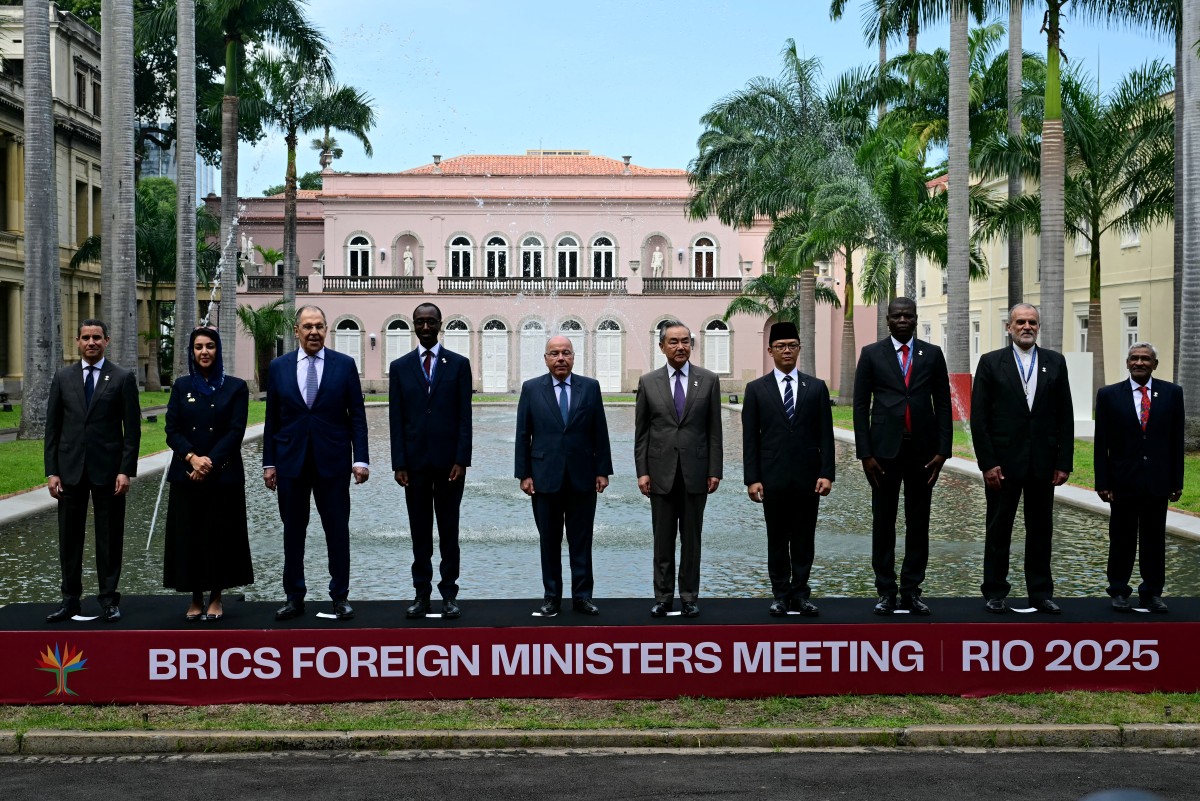Rio de Janeiro, Brazil — Senior diplomats from the BRICS grouping of nations gathered Monday in Brazil to present a united front in the face of US President Donald Trump’s aggressive trade policies.
The meeting comes at a critical moment for the world economy after the International Monetary Fund this week slashed growth forecasts over the impact of the American leader’s sweeping new tariffs.
Foreign ministers from the ten-member trading bloc — which includes current-chair Brazil, Russia, India, China and South Africa — will hold two days of talks in Rio de Janeiro, as a precursor to a July leaders summit.
Ahead of the gathering, Brazil’s BRICS representative Mauricio Lyrio said diplomats were negotiating a joint declaration on “the centrality and importance of the multilateral trading system.”
The BRICS grouping has expanded significantly since its 2009 inception, and now includes Iran, Egypt, Indonesia, Ethiopia and the United Arab Emirates. It makes up nearly half of the global population and 39 percent of global GDP.
Trump, since returning to the White House in January, has hit dozens of countries with a blanket 10 percent tariff, but China faces levies of up to 145 percent on many products.
Beijing has responded with duties of 125 percent on US goods.
At a summit last year, BRICS members discussed boosting non-dollar transactions, eliciting a swift rebuke from Trump, who threatened them with 100 percent tariffs if they undercut the US currency.
Brazilian Foreign Minister Mauro Vieira will host this week’s meeting that will be attended by Russia’s Sergei Lavrov and China’s Wang Yi among others.
Speaking to Brazil’s O Globo newspaper, Lavrov said that BRICS nations planned to “increase the share of national currencies in transactions” between member states but said the talk of transitioning towards a unified BRICS currency was “premature.”
Israeli forces should withdraw from Gaza
Brazil called Monday for a “complete withdrawal” of Israeli forces from Gaza and termed Israel’s blocking of aid to the territory “unacceptable.”
“The resumption of Israeli bombardments and the continued obstruction of humanitarian aid are unacceptable,” Vieira said.
Russian ceasefire –
The group is also likely to discuss the war in Ukraine, as Trump seeks to push Moscow and Kyiv toward a peace agreement.
Russian President Vladimir Putin caused surprise on Monday by announcing a three-day ceasefire from May 8-10.
The White House suggested however that the pause was not satisfactory, saying that Trump had “made it clear he wants to see a permanent ceasefire first.”
Trump appeared to turn against Putin at the weekend after a meeting with Ukrainian President Volodymyr Zelensky at Pope Francis’s funeral, saying he felt the Russian leader was “just tapping me along.”
At the same time he has been pressuring Kyiv to give up hopes of reclaiming Russian-annexed Crimea.
Climate change is also expected to feature high on Brazil’s agenda for the talks, which take place months before the major UN COP30 climate summit being hosted in the Amazon city of Belem.
The BRICS will be joined for discussions on Tuesday by nine other “partner” countries, including several former Soviet states, as well as Cuba, Malaysia, Thailand, Uganda and Nigeria.








